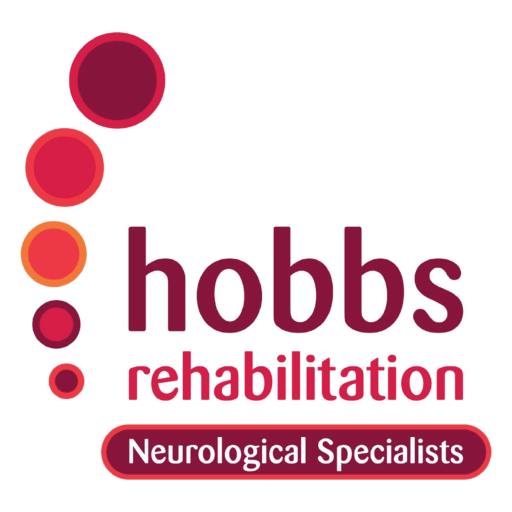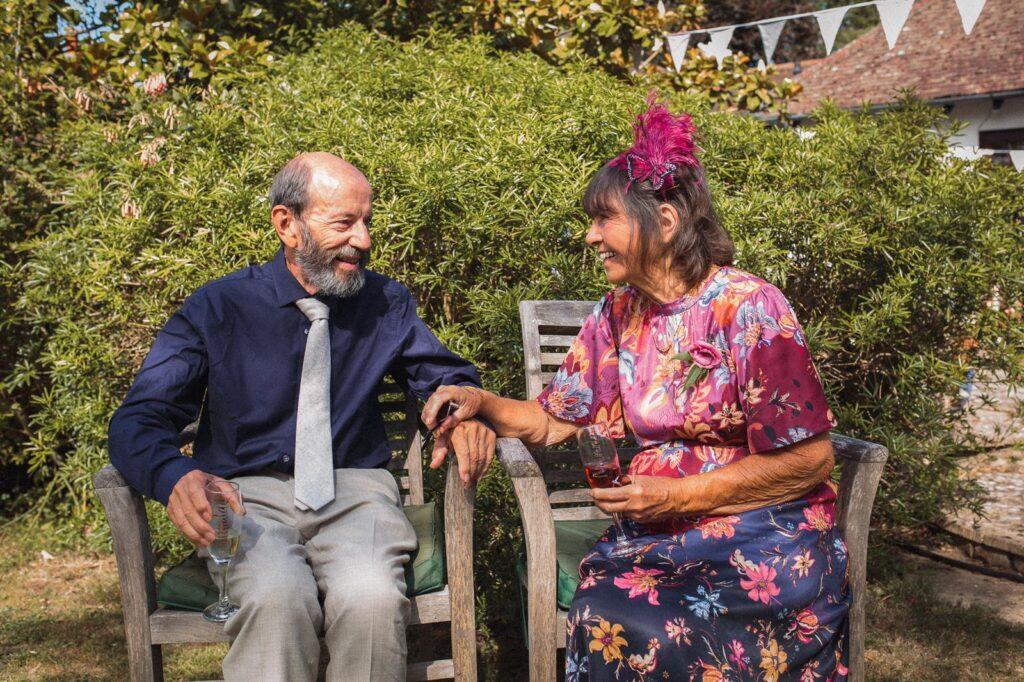From Pat:
When we enquired about Lee Silverman Voice Treatment (LSVT) in late 2020 we did not know that we would be restricted to our home for all of January due to the COVID-19 lockdown. My husband Geoff aged 73, was diagnosed with Parkinson’s Disease in late 2016, had an introductory session online via Zoom with Mel in mid -December and booked the full 16-session programme with her to commence in January.
Geoff had sessions 4 times per week for an hour each time and on the other days, he had to complete LSVT homework sessions 2 times per day for about 20 minutes each time. It is a huge time commitment and very intensive. However, this is part of the planned treatment programme – it is the very intensity which seems to work so well.
Before starting this programme Geoff’s voice had become much quieter and had less expression. He found it difficult to join in day-to-day conversations, with family, work colleagues and others. He had stopped opening conversations, and when asked a question would reply with very limited answers. Using the phone, which had always been part of his family and work life, virtually ceased. He could not face any phone calls, particularly from strangers or business calls.
In the car, he had stopped chatting to me; in the evenings he would sit, not communicating at all, or doze off to sleep. This was spoiling all our previously positive social life. Friends and acquaintances reduced contact with us, and invitations out reduced, as Geoff could not participate in dinner party chitchat.
I began to overcompensate and talk more and more as he became more silent. Even with our numerous grandchildren, aged from 1 year to 30 years, Geoff could not interact as he had in previous years, which had been a real pleasure for us both. Mel explained honestly that the programme could help his volume and speech but would not change his ability to think more quickly or to process information more easily. It would not solve all his communication issues which have resulted from the effects on his brain of Parkinson’s Disease.
Mel showed us where, on a chart, his voice needed to be – he had to think loud in order to regain normal volume. He practised with her his “ah” sounds, and his frequently used phrases, and recognised that he had allowed his voice to drop below normal levels. I think he had put this down to hearing loss on my part – and even though I wear aids, had assumed it was my imagination. As the programme continued, family and friends all confirmed to him that his voice had become too quiet for normal conversation. They all welcomed his new, louder voice and gave him much-needed positive feedback.
Mel also got Geoff to talk about his day-to-day life, and to answer her questions with longer more detailed responses. He had to think quickly and formulate his answers on the spot, something he still found difficult. Mel helped him to develop strategies to use in other interactions whilst maintaining his louder voice.
She set challenges for him to tackle between sessions – for example, to talk to me on a car journey just describing what we were passing. We did not expect that Geoff’s voice would have such a dramatic effect on other aspects of his life. He was always the main person to shop and cook, but the task of cooking had become too much for him – not any more – with the return of his speech confidence he is now able to prepare meals again coordinating timings and enjoying being in charge in the kitchen again. So – did it work? Absolutely YES!
Geoff now speaks in a normal voice, at the right volume for conversation and occasionally louder when appropriate. His confidence has returned together with his louder voice. He thinks more quickly and can respond to random questions, and if he needs a moment to organise his thoughts, he just says ”Let me think a minute” or something similar. I no longer have to step in and speak for him, or move conversations along by intervening. One friend commented, “The old Geoff is back – there is laughter in his voice, and a joke or two again”. The other change is that his voice has more expression; it goes up and down and varies in tone and volume. We cannot thank Mel enough for the almost miraculous changes in Geoff – his Parkinson’s is not just in remission, it’s in retreat!
From Geoff:
I was very apprehensive when my wife, Pat, booked the Lee Silverman Voice Therapy sessions for me. I did not think I needed speech therapy. I put almost everything I could no longer manage down to Parkinson’s and hence it needed no action on my part. I could not “help” it and others should adapt to compensate. Any criticism or request for change was rejected. If Pat could not hear me, it was her problem, not mine. I had begun to avoid situations when I would need to speak, and I stopped answering the phone and “zoned out” of family social activity. I have had issues in the past regarding my voice. As a “Saarf London” boy I won a 100% scholarship to a Public School. My voice and accent were criticised and ridiculed by the staff and pupils alike. School and home were kept firmly separate. I became Senior Prefect, Head of House, and opening bat for the College’s first eleven. I went on to build a successful insurance business, dealing with clients, staff and commercial contracts confidently in person and by phone. As treasurer for a National Charity, I would present annual accounts, to the AGM conference audience of 500+ people, for many years, always incorporating a joke or two much to the members’ appreciation and laughter.
Despite the fact that criticism of my voice and accent happened many years ago I was still very sensitive and reluctant to enter into any activity which might bring back painful memories. Pat was unaware of this anxiety. When Mel asked me as a “challenge” to leave a message on the phone on a subject of my choice, I used some recent information about a famous “old boy” from the school, with whom as a teenager, I had become close friends. The memories had come back.
Mel was very enthusiastic and encouraging and was very positive, giving feedback which made me feel the time spent was well worthwhile. It took considerable effort to achieve the voice level Mel believed I could reach. “Think loud” became a daily mantra, with posters on the walls to remind me, and “think loud” on each phone handset. Mel got me to again chat in the car, over meals and with friends, within the limits of COVID restrictions. I had not realised the effect that my actions were having on Pat and other members of our family. With feedback from Mel and family/friends/business contacts, I learnt just how quiet my voice had become, and how difficult others had found it to interact with me.
As the sessions progressed my voice strengthened, and my confidence and willingness to engage with others improved, leading to better relationships with family and friends. I found Mel’s end-of-therapy summary very informative, reflecting on the massive progress made in just 4 short weeks. She highlighted the improvements and complemented both Pat and I on the commitment we had shown.
Since the end of the therapy, I have continued to practice daily. Further achievements include a visit to pay in a cheque at the bank when I needed to ask bank staff for assistance and was able to do so confidently. My two business partners now comment positively about the volume of my voice making work discussions easier and more fluid. Parkinson’s is no longer controlling me. I can and will delay its effects through my own efforts and actions, and enjoy life to the almost full again. I now read out loud in my new voice to Pat – poems I choose from an anthology each day. I also read to my grandson aged 6 each week which builds on our relationship as he scores my voice and I then rate his reading to me!
It was hard work and I felt challenged to keep going but very worthwhile in the end.
The most significant effect is that I am now aware of how my lack of a strong voice was affecting my relationships with other people. I did not realise how the lack of response was affecting them. Now I am aware, I can and do take action to correct this. I feel much better about myself, less anxious, more positive and outgoing. I smile and laugh more, and life is fun again!

